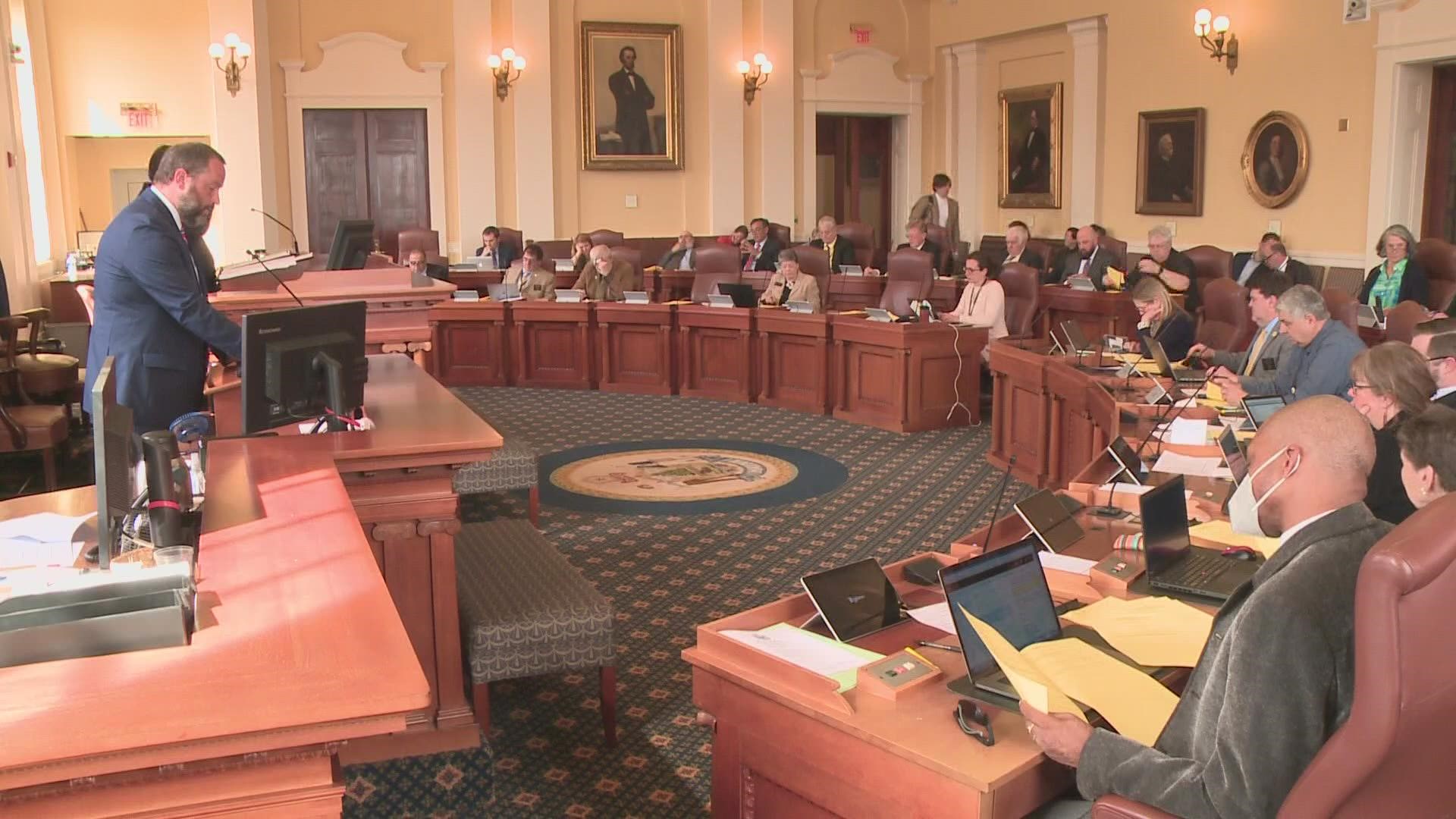AUGUSTA, Maine — EDITOR'S NOTE: The video above aired on April 25, 2022.
In a stinging disappointment for Native American tribes in Maine, the state's Legislature adjourned Monday evening without taking action on a historic proposal to expand tribal sovereignty rights.
There was still the possibility that lawmakers could resuscitate the proposal when they return to deal with vetoes next month.
Tribal reservations in Maine are treated like municipalities, subject to state law, and the state and tribes previously have butted heads over the years on environmental, fish, and wildlife rules.
Native Americans in Maine had seen the proposal as their best opportunity to make history ahead of the midterm elections, with a Democratic governor and Democratic control of the Legislature.
But the proposal generated an election-year split between legislative Democrats and Gov. Janet Mills. Pressing for incremental change, Mills encouraged legislators and tribal leaders in a letter released Monday to delay their efforts — allowing her to avoid a high-profile veto.
“I do not wish to have a confrontation,” the governor wrote. “It would serve no constructive purpose and only inflame emotions on all sides of the discussion.”
The letter was written Thursday evening, the day before the appropriations committee declined to fund the bill.
Maggie Dana, chief of the Passamaquoddy Tribe at Pleasant Point, told The Associated Press last week that she hoped the governor would be “on the right side of history” and agree to the tribes' long-sought changes.
The effort to amend the Maine Indian Land Claims Settlement Act of 1980 also came against the national backdrop of the Biden administration looking to partner with tribes on managing land and to ensure they’re consulted early on policies or actions that impact them.
But the tribes did win a legislative victory Monday.
The Legislature sent to the governor a proposal to provide online sports betting revenue to the tribes. That bill also has provisions for tribal collaboration and some tax relief.
Lawmakers earlier approved — and the governor signed — a bill that gives the Passamaquoddy Tribe at Pleasant Point the right to regulate its own drinking water, partnering with the U.S. Environmental Protection Agency, instead of state regulators.
For the tribes, it has been a long, frustrating battle since they traded some rights to the state under an $81.5 million settlement that was signed by President Jimmy Carter in 1980.
That settlement for the Passamaquoddy, Penobscot, and Maliseet, along with a 1991 agreement for the Mi’kmaq, put the tribes in Maine on a different footing from tribes elsewhere across the country. More than 570 other tribes have greater autonomy and partner with the federal government.
Critics of extending tribal sovereignty, including the governor, feared there could be unintended consequences and more lawsuits.
Among other things, the governor said she had concerns about removing nearly 300,000 acres of land held in trust from state or local regulations governing everything from fish and game, land use provisions, and logging practices to health care and law enforcement.

